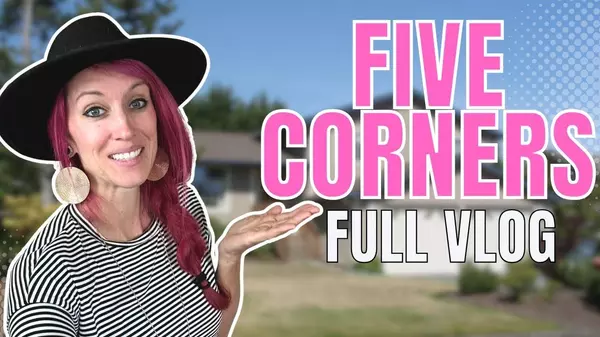5 Mistakes You Should Avoid When Selling Your Home
5 Mistakes You Should Avoid When Selling Your Home
Selling a home can be a stressful process, especially if you're not familiar with the real estate market. In order to avoid making some common mistakes, it's important to be aware of what to do and what not to do when selling your home. As a real estate expert, I'm here to help you avoid five common mistakes that many homeowners make when selling their homes.
Here are five common mistakes homeowners make when selling their home—and how to avoid them:
1. Overpricing the Home
Why Starting Too High Can Cost You More in the Long Run
It’s a common seller mindset: “Let’s price it a little higher—we can always come down later.” While this may seem like a smart strategy, it often backfires.
Today’s buyers are market-savvy. With endless online tools and access to comparable listings, they can instantly spot when a home is overpriced. The result? Your home gets passed over in favor of similarly sized and better-priced properties. Even worse, when a listing sits on the market for too long, it starts to raise red flags—buyers begin to wonder what’s wrong with it? and assume there must be issues.
When a home lingers without offers, the inevitable price reductions can give the impression that you’re desperate to sell. This weakens your negotiating position and often results in a final sale price lower than if it had been competitively priced from the start.
How to Price Right from Day One
To avoid this pitfall, it’s essential to lean on your real estate professional to run a comparative market analysis (CMA) focused on recent sales of similar homes in Vancouver, WA. This includes:
-
Recent sales of similar homes in your area
-
The condition and upgrades of your property
-
Current market trends and buyer demand
-
Local economic factors and seasonality
Pricing right doesn’t mean underpricing—it means being strategic. The goal is to generate strong interest early, attract multiple buyers, and create a sense of urgency. Often, this leads to better offers and more favorable terms.
In a competitive market, the first impression is everything. And the right price is your home’s handshake.

2. Skipping Repairs and Maintenance
Why Fixing the Little Things Makes a Big Difference
It’s easy to overlook those minor quirks around your home—the squeaky door, the dripping faucet, or that small crack in the drywall—because you’ve grown accustomed to them. But potential buyers don’t have the same tolerance. These small issues, while seemingly insignificant to you, can create doubts about the overall condition of the home and raise concerns about potential hidden problems.
When buyers see needed repairs left undone, they often factor in the cost and hassle of fixing these issues, which can lead them to lower their offers—or worse, move on entirely. In a competitive market, a home that looks move-in-ready has a clear advantage.
Presenting a Well-Maintained, Move-In Ready Home
Addressing basic repairs before listing sends a powerful message of pride of ownership and transparency. Whether it’s patching holes in the walls, fixing leaky faucets, replacing burnt-out light bulbs, or ensuring your HVAC system is serviced and functioning well, these improvements can boost buyer confidence and often lead to faster, higher offers.
Don’t forget to tackle maintenance tasks too—like cleaning gutters, servicing appliances, and ensuring all systems (plumbing, electrical, heating/cooling) are in good working order. A well-maintained home shows buyers they’re making a smart investment and helps prevent last-minute negotiation setbacks after the inspection.
3. Failing to Stage the Space
Helping Buyers See Themselves Living in Your Home
When buyers walk into a home, they’re not just looking at walls and floors—they’re imagining their lives unfolding there. Personal clutter, excessive decor, or empty, cold rooms can make this visualization difficult. If they can’t picture their furniture, family, and lifestyle fitting comfortably, they might move on to a home that feels more inviting and adaptable.
Staging your home—whether professionally done or thoughtfully arranged by you—creates a welcoming, neutral canvas that highlights your home’s best features while minimizing distractions. It helps buyers focus on the space itself, its flow, and potential.
Simple Staging Tips That Make a Big Impact
-
Declutter and depersonalize: Pack away family photos, collectibles, and excess furniture to open up rooms and allow buyers to imagine their own belongings in the space.
-
Add cozy touches: Fresh linens, tasteful throw pillows, and inviting rugs can add warmth without overwhelming the room.
-
Create flow and functionality: Arrange furniture to showcase the best use of each room and make spaces feel open and easy to navigate.
-
Appeal to the senses: A clean, fresh scent (think subtle candles or fresh flowers) can make a lasting impression. Avoid strong odors or anything too personalized.
Even small staging efforts can transform your home from just another listing into a place buyers fall in love with—helping your property stand out in a competitive market and often leading to quicker, higher offers.
4. Limiting Showings
Why Flexibility in Showings Can Make or Break Your Sale
When it comes to selling your home, exposure is everything. The more potential buyers who see your property, the higher the chance of receiving strong offers and even sparking a bidding war. Limiting showing times or being inflexible with buyer schedules can severely reduce the pool of interested buyers, causing your home to linger on the market longer than necessary.
Especially in the crucial first few weeks after listing—when buyer interest tends to be highest—maximizing your home’s accessibility is key. The longer your home stays on the market without activity, the more buyers begin to question its value or condition.
How to Make Your Home Available Without Losing Your Mind
While it’s understandable to want privacy and convenience, try to be as accommodating as possible when scheduling showings. Here are a few tips:
-
Allow showings during evenings and weekends to reach buyers who work traditional hours.
-
Consider last-minute or same-day showings, as some buyers plan their visits spontaneously.
-
Use lockboxes or a trusted real estate agent to facilitate easy access for agents and buyers.
-
Keep your home clean and ready at all times so you’re always prepared for a showing on short notice.
By embracing flexibility, you not only increase your home’s visibility but also create a positive impression on buyers and agents, helping your property stand out in a competitive market.

5. Trying to Navigate the Sale Alone
Why Selling Without an Agent Can Cost You More Than You Think
Selling a home is far more complex than simply putting a “For Sale” sign in your yard. It involves legal contracts, price negotiations, coordinating inspections, meeting deadlines, and understanding disclosure requirements—tasks that require experience and careful attention to detail.
Trying to manage all of this on your own can lead to costly mistakes, missed opportunities, or even legal pitfalls. Without a seasoned professional guiding you, you risk undervaluing your home, mishandling offers, or overlooking critical paperwork.
How a Skilled Real Estate Agent Makes the Difference
Partnering with an experienced real estate agent means having an expert advocate by your side throughout the entire process. Your agent will:
-
Develop a pricing strategy tailored to the current market to maximize your sale price
-
Market your home effectively to attract qualified buyers
-
Handle negotiations with professionalism to secure the best terms
-
Coordinate inspections, appraisals, and closing timelines seamlessly
-
Provide guidance and support through every step, reducing your stress and ensuring compliance with all regulations
Ultimately, having a trusted agent working for you increases your chances of a smooth, successful sale and often results in a higher final sale price.
Final Thoughts on 5 Mistakes You Should Avoid When Selling Your Home
Selling your home doesn’t have to be overwhelming. By avoiding these five pitfalls—overpricing, skipping repairs, not staging, limiting showings, and going it alone—you’ll be well on your way to a smoother, faster, and more profitable sale.
Thinking about listing your home? Let’s connect—I’m here to help you sell smart and stress-free.
In conclusion, selling a home can be a stressful process, but by avoiding these five common mistakes, you can increase your chances of a successful sale. Remember to price your home competitively, address necessary repairs, stage your home, be flexible with showings, and work with a real estate professional. Good luck with your home sale!
Sign up for my monthly newsletter to receive expert advice, important local updates, and insider knowledge on the best ways to thrive in this unique region. Whether you're buying, selling, or simply curious about life in the Pacific Northwest, I've got you covered.
👉 Join my newsletter today and never miss a beat! Just enter your email below and get exclusive access to all things Southwest Washington. Let’s stay connected!
Frequently Asked Questions
What not to say when selling a house?
Avoid sharing personal motivations like "we’re desperate to move" or disclosing flaws like "the basement floods sometimes." These comments can weaken your negotiating power or raise red flags for buyers, even if they're fixable issues.
What not to spend money on when selling a house?
Skip expensive, niche upgrades like custom wallpaper or high-end built-in electronics—they rarely pay off in resale value. Focus instead on neutral paint, curb appeal, and fixing obvious defects.
Can I offer 20% below the asking price?
You can, but it depends on the market—lowballing in a seller’s market can backfire or even offend the seller. In a slower market or if the home is overpriced, it might spark a negotiation.
What do you legally have to leave when selling a house?
Anything considered a fixture—like light fixtures, built-in appliances, and anything nailed, bolted, or mounted—is typically expected to stay. These rules can vary by state, so always check your real estate contract and local laws.
What brings good luck when selling a house?
Many sellers bury a St. Joseph statue in the yard, a tradition said to bring quick sales. Fresh flowers, open windows, and good lighting can also boost buyer mood and energy flow.
What not to fix before selling your house?
Avoid over-improving with luxury upgrades like gourmet kitchens or spa bathrooms unless you're in a luxury market. Cosmetic flaws like small nail holes or outdated decor are often better left as-is if the rest of the home is priced accordingly.
What matters the most when selling a house?
Price, presentation, and location are the top three. Homes that are clean, well-staged, and competitively priced sell faster and for more money.
What hurts house resale value?
Overpersonalized renovations, poor maintenance, loud paint colors, or outdated systems can all negatively affect resale. Location factors like being near a noisy road or power lines may also lower value.
Should I fix up my house or sell it as is?
That depends on your goals—fixing up may net a higher sale price, while selling as-is is faster and simpler. If you’re short on time or funds, “as-is” may be the smarter route.
What happens if you leave stuff in a house you sell?
Unless otherwise agreed upon in writing, anything left behind becomes the buyer’s responsibility—and may cause legal trouble. Always clarify what’s staying and arrange for junk removal if needed before closing.
Categories
Recent Posts










GET MORE INFORMATION

Cassandra Marks
Realtor, Licensed in OR & WA | License ID: 201225764
Realtor, Licensed in OR & WA License ID: 201225764
